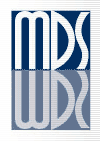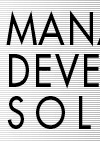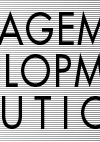|
Training Programs
Taking Charge of Your Development
How to Learn On the Job
Most companies have the philosophy that employees have the primary responsibility for their development, while the manager has a developmental coaching role and the company is to provide resources such as training and mentoring. However, it is not enough to empower employees to take charge of their own development. They need the knowledge and skills to do so. In addition, their manager needs to be a good developmental coach.
“Taking Charge of Your Development” is based on the research which shows that the best opportunity for development occurs through experience (the 70-20-10 rule). This workshop teaches employees to be smarter/better learners and intentional in their development. For managers, it teaches them how to use projects and assignments to stretch/develop their people and how to ask good coaching questions.
“Taking Charge of Your Development” as an engagement and retention strategy
A 2012 report from talent measurement and assessment company SHL found that Millennials, more than any other group, reported “opportunities to learn, acquire skills and personal development” as key to their workplace engagement and the biggest reason they stay with a company. The TCOD program focuses on those areas.
Audience
Employees (usually high potentials)
Managers (of high potential employees)
Objectives/Deliverables
> Participants learn proven/effective ways to develop through experience (on and off the job).
> Participants learn how to identify the “right” development goal.
> Participants create a draft of a development plan or enhance the effectiveness of an existing one.
> Participants learn how to maximize learning when implementing the development plan.
Overview
This workshop covers 6 essential components for successful development:
1. Overcoming Barriers to Development
2. Identifying or Creating Development Opportunities
3. Identifying the “Right” Development Goal
4. Creating an Effective Development Plan
5. Expanding Your Approach to Learning
6. Maximizing Learning when Implementing the Development Plan
Program Description
1. Overcoming Barriers to Development -- Participants examine why employees don’t develop. Typical reasons include they’re too busy or lack support (no training, feedback, etc.). While these reasons feel real to the employee, they are often self-imposed and in many ways excuses. Through this workshop, participants learn how to overcome those and other barriers to development.
2. Identifying or Creating Development Opportunities -- Participants go through an exercise where they recall an event that had the biggest impact on their development and changed the way they approach their work or relate to others. The common themes from those stories serve as the basis for realizing that development occurs mostly through experience, on or off the job. It also becomes clear that not all experiences are equally developmental; the experience must be challenging in order to have any developmental impact.
3. Identifying the “Right” Development Goal -- In order to create an effective development plan, the development goal must be appropriate (targeted to enhance current job performance and/or prepare the individual for additional responsibilities or the next assignment/promotion). Participants learn ways to identify the development goal appropriate for them.
4. Creating an Effective Development Plan -- Armed with the above information, participants learn an approach that easily helps them create an effective development plan or enhance an existing one. Participants pair up to help one another.
5. Expanding Your Approach to Learning -- Research has shown that when faced with a challenging experience we deal with it in a way that gets us back into our comfort zone (referred to as our preferred learning style). We feel better but lose some of the development potential that experience offers. Participants assess their preferred learning style and learn how to expand their approach to learning.
6. Reflecting on Lessons Learned (Asking Effective Coaching Questions) -- Experience provides an opportunity to develop, but that is not enough. To convert a development opportunity into a learning experience, it is necessary to reflect on the experience. Participants learn how to reflect on an experience to glean lessons learned and thus maximize learning when implementing the development plan. Managers learn how to ask effective coaching questions, which is critical in order to help employees be better at reflecting and gaining lessons learned. Participants also learn how to be intentional (proactive) in their development.
At the end of the workshop, participants review the list of barriers to development they identified in the beginning and now realize they can develop while doing their job, as well as when involved in activities outside of work, and that lack of resources (e.g., training and feedback) forces them to be more resourceful in their development.
Length of Workshop: 2 hrs., 1/2, or 2/3 day (depending on course design)
Participant Size: Best for 12-16 (or more, depending on course design)
Copyright © 2015 Management Development Solutions. All rights reserved
|






